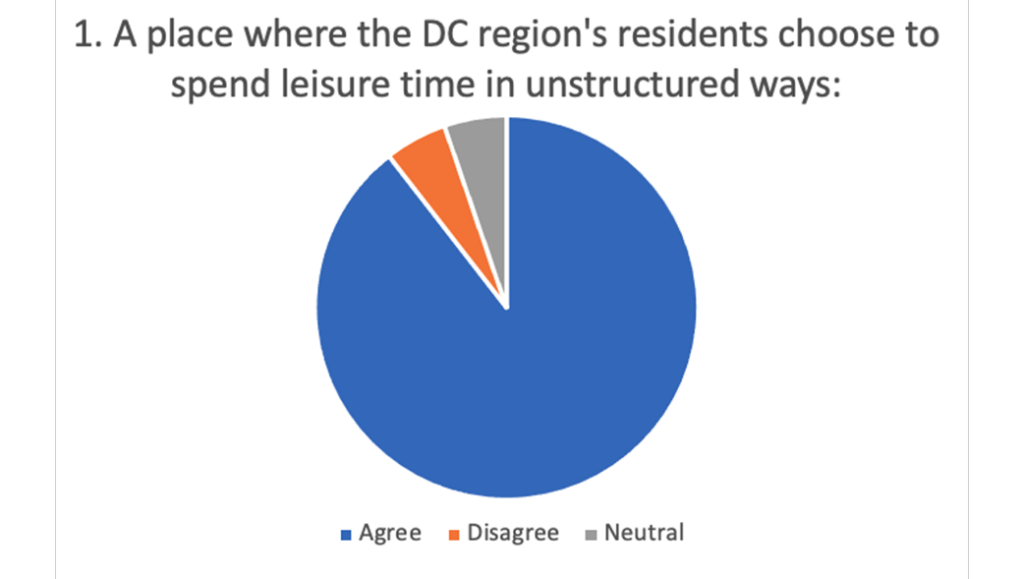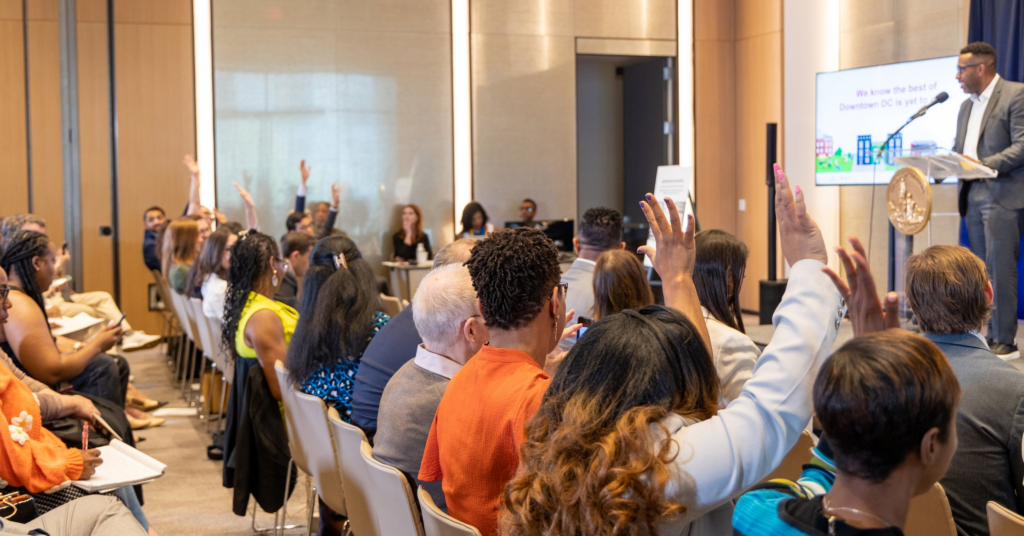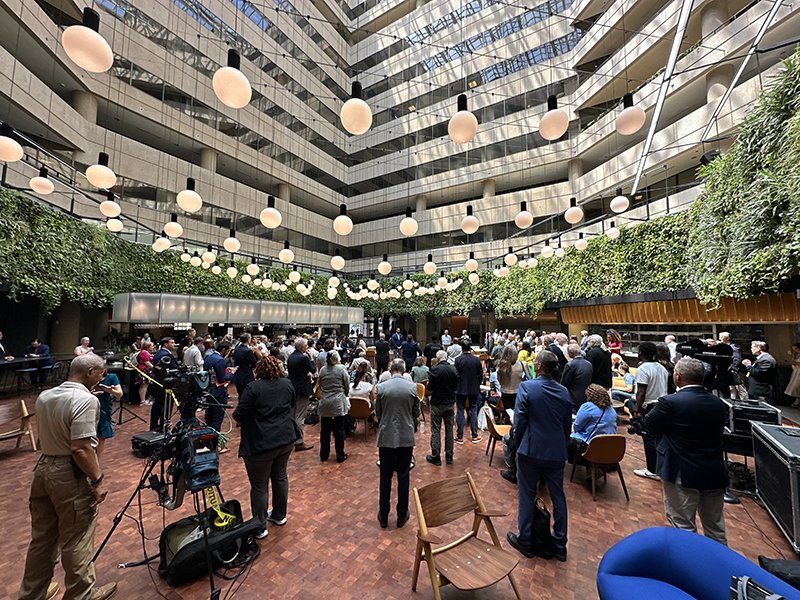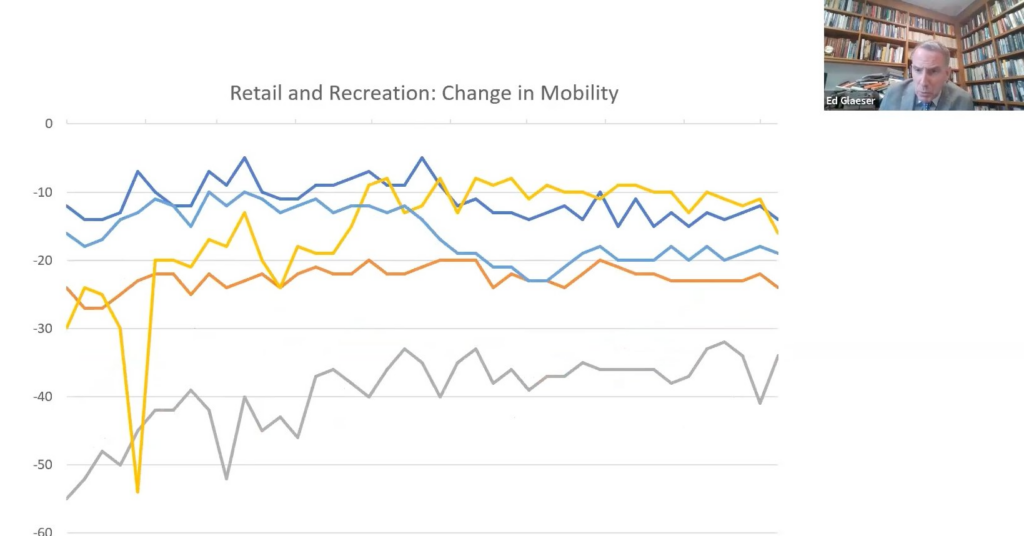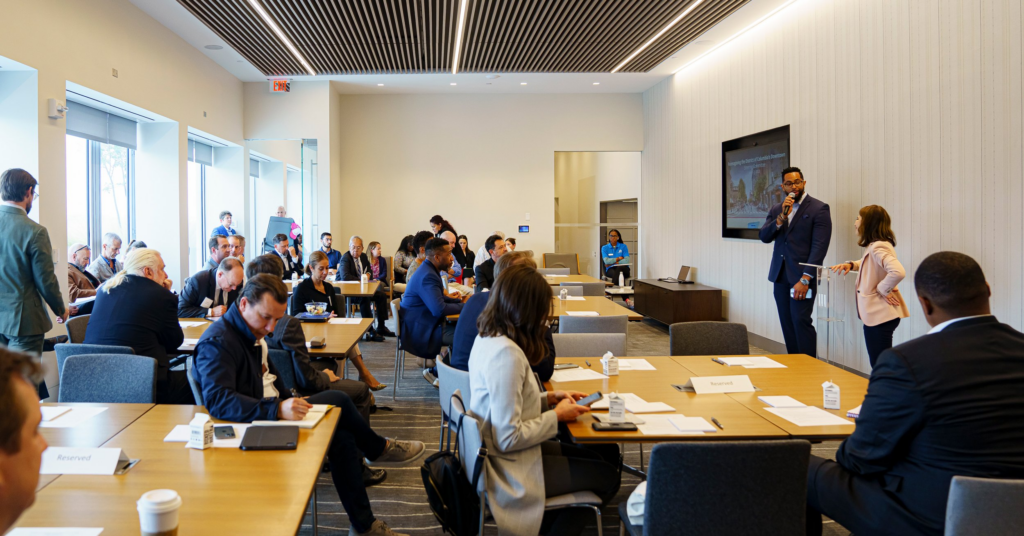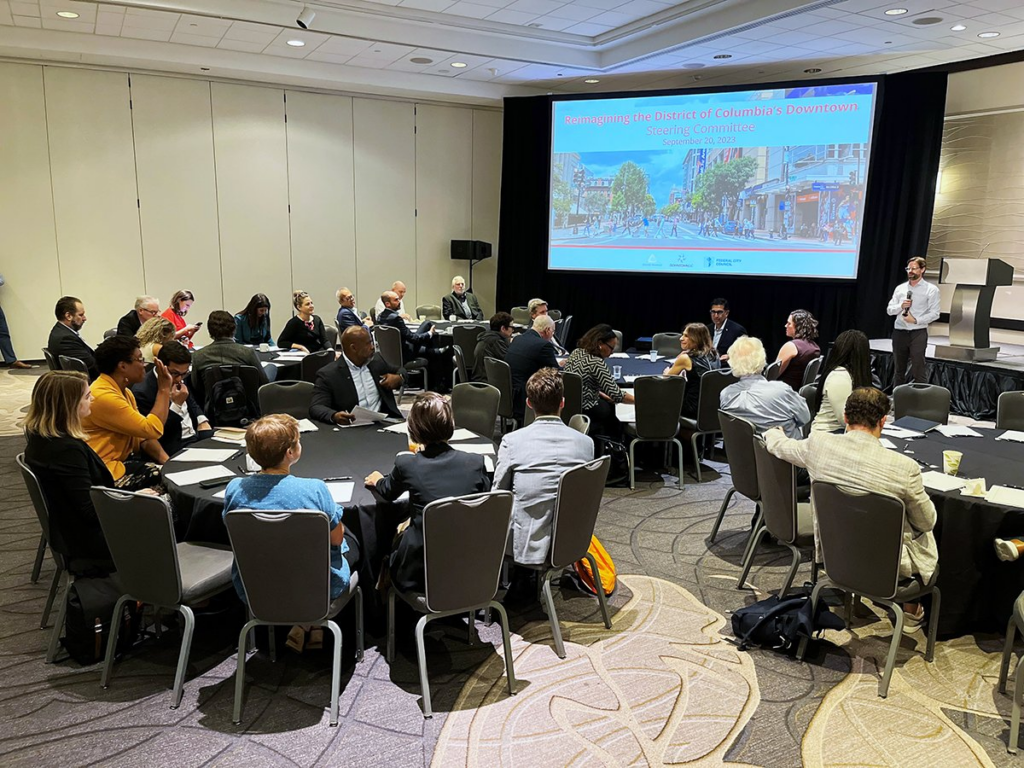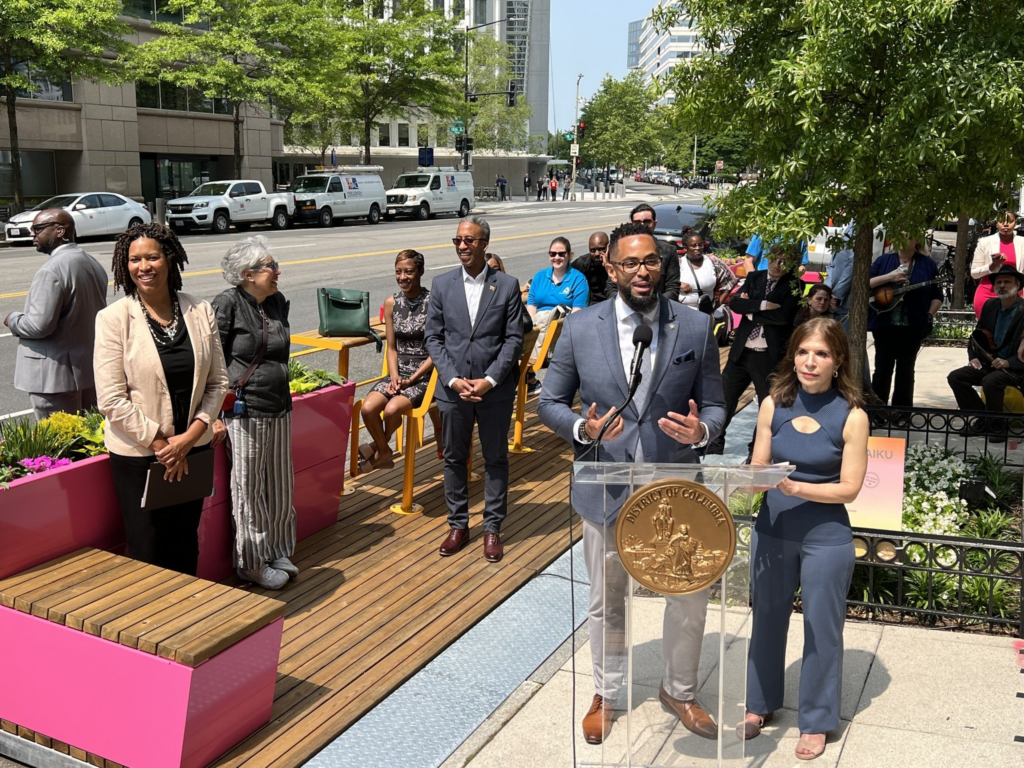The Downtown Action Plan Project Team
The Golden Triangle BID
Formed in 1998, the Golden Triangle Business Improvement District (BID) enhances D.C.’s central business district, the 44 square-block area stretching from the White House to Dupont Circle. The BID provides a clean, safe, and vibrant environment for hundreds of thousands of workers, residents, and visitors through its place-management programs and economic development. The BID serves as a resource for existing and new businesses in the area by providing information on available incentives, support with regulations, and hyperlocal data and insight. Additionally, the BID encourages economic development through capital projects, public art, sustainability initiatives, and events, often through bringing together public and private partners and leading long-term efforts like the Penn West Equity and Innovation District.
The DowntownDC BID
The DowntownDC Business Improvement District (BID) was founded in 1997 and is a private nonprofit organization that provides capital improvements, resources, and research that keep the BID area clean, safe, economically and environmentally strong, and accessible. The DowntownDC BID is a catalyst, facilitator, and thought leader in diversifying the economy, promoting public-private partnerships, and enhancing the downtown experience for all. DowntownDC encompasses a 140-block area of approximately 530 properties, from Massachusetts Avenue on the north, including the Walter E. Washington Convention Center at Mount Vernon Square, to Constitution Avenue on the south, and from Louisiana Avenue on the east to 16th Street on the West.
The Federal City Council
The Federal City Council (FC2) is a nonprofit, nonpartisan, membership-based organization dedicated to the advancement of civic life in the nation’s capital. Established in 1954, the FC2 recognizes that improvements in the District of Columbia’s social, economic, and physical infrastructure require innovative, tireless work. They seek long-term solutions to complex, community-based problems that produce lasting change and a stronger D.C.
Office of the Deputy Mayor for Planning & Economic Development
The Office of the Deputy Mayor for Planning and Economic Development (DMPED) assists the Mayor in the coordination, planning, supervision, and execution of economic development efforts in the District of Columbia with the goal of creating and preserving affordable housing, creating jobs, and increasing tax revenue. DMPED pursues policies and programs that create strong neighborhoods, expand and diversify the local economy, and provide residents with pathways to the middle class.
Mayor Muriel Bowser
Muriel Muriel Bowser is the seventh elected mayor of Washington, D.C. She has a strong record of creating a bold urban policy agenda, making tough decisions in a high-stakes environment, and shaping a diverse economy.
The following organizations facilitated the Action Plan’s project management strategy, stakeholder engagement process, economic development research, data analysis, and report writing.
Friendly Design Co.
Friendly Design Co is a strategic design studio that builds impactful brands and websites with organizations who repair our world and strengthen our communities.
Trueblood.city
Trueblood.city supports public agencies, nonprofits, and businesses that are building more vibrant and equitable futures.
RCLCO
RCLCO is the “first call” for organizations seeking strategic and tactical advice regarding property investment, planning, and development.
HDR
HDR specializes in engineering, architecture, environmental, and construction services.
Justice & Sustainability Associates
JSA specializes in designing and implementing large and small-group, multi-stakeholder agenda-setting and decision-making processes.
Kyanite Partners
Kyanite supports clients on complex urban challenges, reconciling competing interests, forging meaningful relationships, and working collaboratively toward more resilient and inclusive teams and built environments.
Learn More
Download the Downtown Action Plan for more details.
Process
Action Plan Library
Golden Triangle BID
DowntownDC BID
Downtown Planning
Action Plan Research
-
History of Downtown Economy, Planning, & Investments
While the “big questions” facing stakeholders in Downtown D.C. might seem unprecedented in terms of scale and urgency, Downtown D.C. has faced similar questions before – how to take advantage of future market opportunities, how to leverage unique cultural assets, and how to bring a greater diversity of people with different needs and motives to Downtown D.C. by enabling mixed-use development.
-
Economic & Demographic Trends
Downtown D.C. is geared more towards jobs than households, which could weaken its regional competitiveness. Today, Washington, D.C. lags nearly every other major city in terms of the ratio of households to jobs in its downtown.
-
Downtown Fiscal Impact
Downtown D.C. is an essential part of the District tax base. In FY 2023, Downtown D.C. is projected to bring in $2.3 billion in local fund revenues, equivalent to approximately $1.00 in every $4.00 that the District of Columbia collects.
-
Existing Conditions Analysis by Economic Sector
Washington D.C. is lagging behind other major cities when it comes to diversifying the mix of commercial and residential land uses in its Downtown. Today, Downtown D.C. offers fewer housing options for its employees than the downtowns of almost every other major city.
-
Existing Conditions Analysis by Social Infrastructure Sector
People view Downtown D.C. as a largely favorable place to live and visit, but few consider it an appealing place to live, other than its existing residents. Broadening the household base of Downtown D.C. will require not only additional housing options, but also expanded neighborhood retail and services – to ensure others see Downtown D.C. as a viable residential location.
-
Work-From-Home Trends & Implications
In Downtown D.C., most firms have adopted hybrid workplace policies that are not expected to change in the near term. Prior to the COVID-19 pandemic, approximately 83% of office workers in Downtown D.C. held jobs that were fully in-person. That figure now sits at 34%, with a majority of office workers in Downtown D.C. now holding jobs with hybrid work schedules.
-
Analysis of Regional Economic Competition
There are many workforce, demographic, and accessibility factors that make Downtown D.C. a favorable location for office tenants in the region. However, Downtown D.C. has long struggled to diversify its amenity and residential offerings, especially relative to regionally competitive submarkets.
